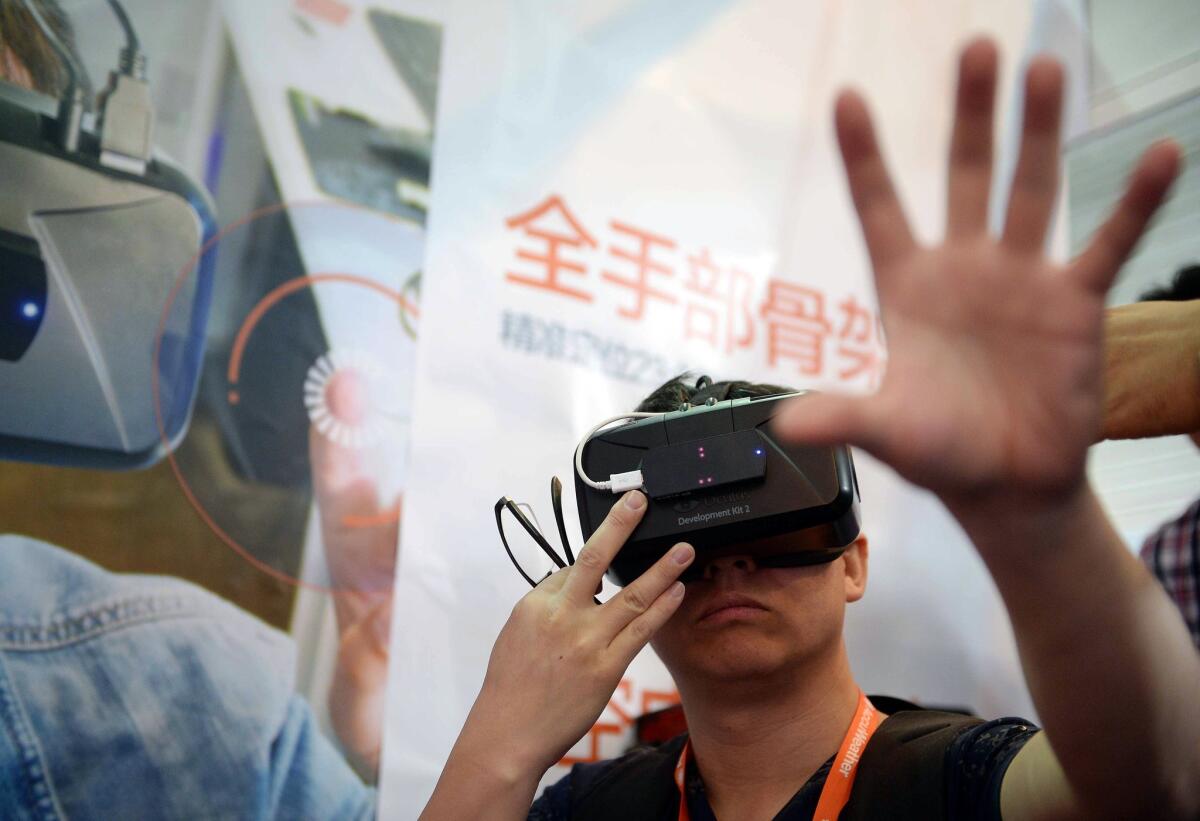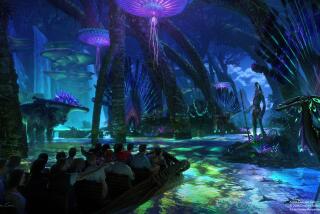VR Watch: Theme-park company Landmark expands into virtual reality

A visitor tries on virtual reality glasses from Oculus Rift Development Kit 2 (DK 2) during the first Consumer Electronics Show (CES) in Asia in Shanghai.
Virtual reality has held out the promise of making the drama of movies and TV shows seem as immersive as the real world. Can it make pure escapism more compelling too?
Landmark Entertainment, a company that has designed a number of movie-oriented theme-park attractions, believes it can, and is incorporating the technology into a new project.
Run by the theme-park veteran Tony Christopher, Landmark (no relation to the theater chain) announced Monday that it will use VR at a series of new locations in China. These venues will, as a release put it, mix “art, culture and retail with virtual reality, augmented reality and themed architecture and design.” The goal is for virtual zoos and other experiences that use digits to capture what has previously been rendered with real-life objects.
It’s still early; it will be several years before we see the fruits in any real-world setting, as the Southland-based company is still working with Chinese partners, Christopher said. An earlier attempt for a China-based theme park did not come to fruition.
Still, the possibility of theme parks melding with VR adds another layer to the medium’s burgeoning uses, which already include cinema, video games and art, to name a few.
Christopher is more skeptical about the immediate growth potential of so-called in-home VR (this is what Oculus will seek to popularize with its headsets next year, and is what gets many film types excited), in part because more uniform technology platforms have not yet been worked out.
Still, the businessman -- who helped design “Terminator” and “Jurassic Park” attractions earlier in his career and was also behind the early 4-D experience “The Sensorium” in the 1980s -- says he has plans in this regard too. “The goal ultimately is to bring in-home and out-of-home closer together,” he said in a phone interview.
In layman’s terms, that means that a theme park ride could potentially be accessed in one’s living room, or at least its thrills simulated to a sufficiently convincing degree. (Already, Stanford’s VR Lab has tinkered with this.)
And it means the definition of narrative content is going to continue to morph. Ultimately, if entrepreneurs such as Christopher have their way, the line between theme parks and movies will become ever-murkier. For better or worse, the idea that the only relationship between theme parks and movies is via branding arrangements, a la the “Tomorrowland” film, will seem as naive and early-days as the steam trolley.
Twitter: @ZeitchikLAT
More to Read
Only good movies
Get the Indie Focus newsletter, Mark Olsen's weekly guide to the world of cinema.
You may occasionally receive promotional content from the Los Angeles Times.











